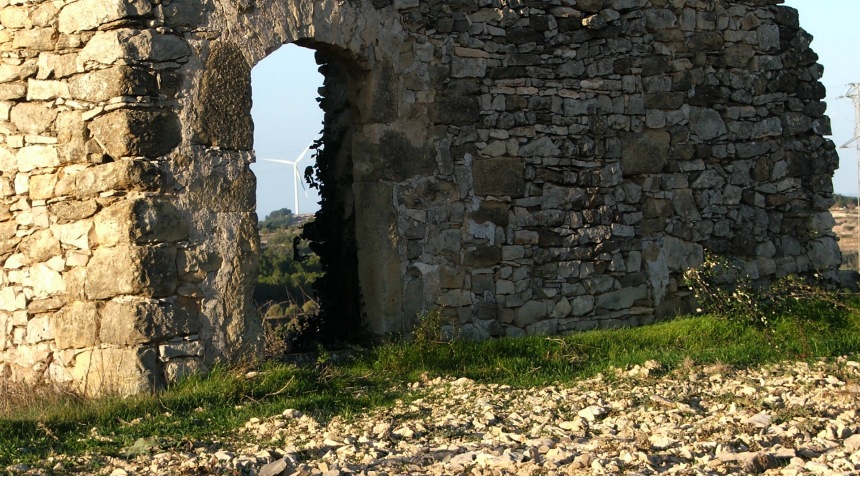Today’s image: Old stone walls and arch, Tarragona, Spain.
Today the news in Spain is that Catalunia has voted to move towards secession.
This is not a new thing. With its capital Barcelona, the region of Catalunia was a centre of dissension in the Guerra Civíl, the Spanish Civil War that preceded World War II.
La Guerra Civíl
Forget the lyrical tales of the outsiders who came, saw Spain’s conflict through politically shaded lenses, then left to write their equally shaded perceptions.
The war was ugly, the country ripped apart, the human cost agonising.
Rights and wrongs? We lived where the greatest battles of the last days had been fought, and along with the mortars and metal shards we would find occasional bones, silent shouts from the men who were there. I would hear their story, not the smooth slanted words of secession salesmen.
Those are thoughts for another day.
But there are long memories in the north, and bitter tales of the injustices as remembered by the everyday people.
The Catalan Language
After his victory in the Civil War, Franco ruled with a military hand. In Catalunia one of the most resented dictates of his era was the insistence on Castellano Spanish as a national language.
The Catalan language, which the people saw as part of their heritage, was not permitted to be taught in the schools, nor to be used in official business. The right to their language became a rallying point, and even after the Franco era ended and democracy relaxed the constraints, it was a useful flag to wave.
Add an increasingly brash nationalistic rhetoric, an embroidered past of the grandparents, and you see what has been seen in every generation – a youth fired up with the ideals of righting the perceived wrongs.
Secession
Catalunia in the north-east is one of the seventeen autonomous regions that make up Spain. Each region is self-governing, with regional powers and responsibility for its internal affairs. At the same time the autonomies remain subject to the central government in the larger national scope.
Think of it as similar in concept to America’s division into States, with their Governors and state legislatures; and the Federal controls that work on a national level.
Politicians in Catalunia began to voice their demands – the right to be fully independent, to run their own affairs, to retain their taxes, to speak their particular Catalan language.
Matters built, tensions grew, and the end result was yesterday’s referendum: Should we as Catalunia secede from Spain and become a nation in our own right?
The answer was positive.
At present we are seeing mass jubilation in the north, whilst Madrid, the seat of central government, is faced with serious decisions. Spain’s constitution, to which all the regions are subject, does not allow for a unilateral secession such as Catalunia is seeking.
Once the initial euphoria dies down we’ll be looking at the sober implications of this very real threat to national peace.
 Copyright secured by Digiprove © 2015
Copyright secured by Digiprove © 2015 